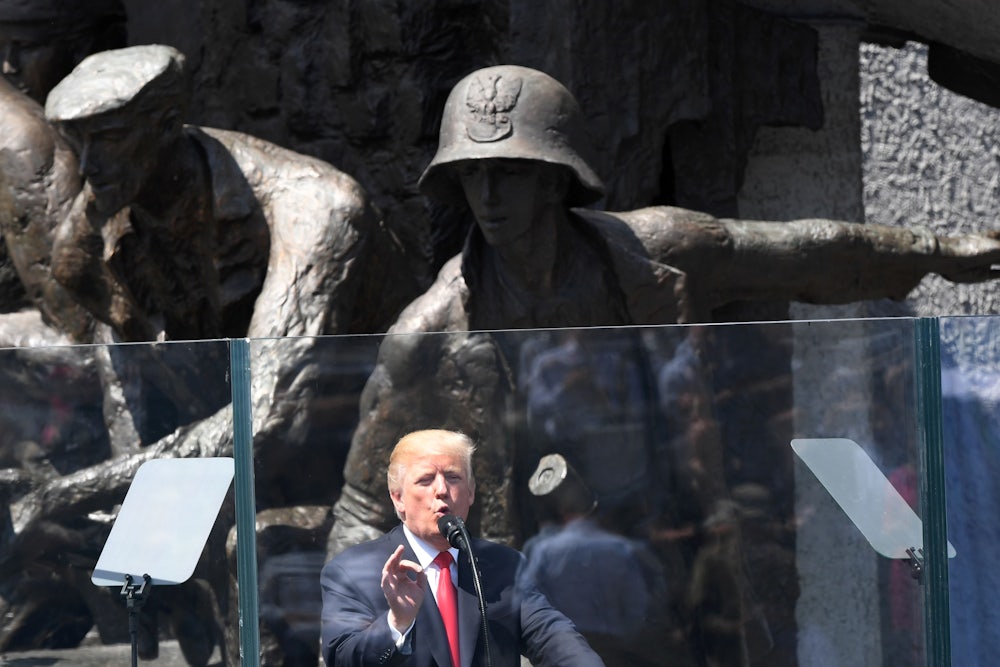When Egyptian President Abdel Fattah al-Sisi visited the White House, Trump made no mention of the fact that thousands of dissidents are being held in Egyptian jails. When he visited Saudi Arabia, he did a sword dance, but broke from longstanding tradition by not mentioning the country’s numerous human rights abuses. Instead, he emphasized a shared mission against terrorism, which he depicted as a “battle between good and evil.” Trump has been reluctant to present the U.S. as a beacon for freedom or liberty or human rights, but he has made the case that it is the leader in a fight against evil.
On his current foreign trip, Trump has broadened this fight to a civilizational scale. In a speech in Poland today, he asserted that the U.S. is not withdrawing from the world while calling on European allies to increase their commitment to fighting terrorism. In doing so, he pitched the fight against extremism as a war for the survival of Western civilization and its allies.
The fundamental question of our time is whether the West has the will to survive.... Our own fight for the West does not begin on the battlefield—it begins with our minds, our wills, and our souls.... Americans, Poles, and the nations of Europe value individual freedom and sovereignty. We must work together to counter forces, whether they come from inside or out, from the South or the East, that threaten over time to undermine these values and to erase the bonds of culture, faith, and tradition that make us who we are.
This is a radical simplification of the kinds of arguments that have been made in defense of the War on Terror. Trump is pitching the fight as a war between differing cultures, rather than between differing values. This has always been the subtext of many of these arguments. True to form, Trump is making that subtext into text.
